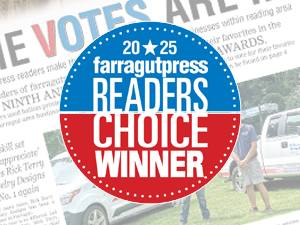Students unite to fight climate change, sending letters to D.C.
Parin Bharduri and Paul Calkins Jr. are buddies at Farragut High School. They love discussing current issues, but they’re on opposite ends of the political spectrum. There’s one thing they’re in complete agreement on, though: global temperatures are rising way too fast and something needs to be done.
Now the young men are in the middle of a letter-writing campaign at the high school. They are asking students to write letters to Sen. Lamar Alexander and Sen. Bob Corker [both R-Tenn.] to encourage them to support measures to slow down global warming. They’d also like to get other schools involved. Deadline for the letters is March 3, and by that point they hope to have collected hundreds.
“Senators Alexander and Corker have both admitted that climate change is human-caused and a real issue,” Bharduri said. “As veterans of the Republican party, they could help change the Republican party platform to include climate change as a real issue.”
Bharduri signed up for Lauren George-Smith’s environmental science class this year, saying it was there
he began to learn specifics on climate change.
“The first day of class we were looking at ecological footprint trends,” he said. “We examined the natural capacity and the ecological footprint of different countries. The ecological footprint in the U.S. is much higher than the natural capacity, which is worrying.”
As Parin discovered more facts, he shared them with Paul, who said he has seen the impact of climate change firsthand.
“I grew up in Florida and we would go to the Bahamas,” he said. “This past year we went back and talked to some of the locals. Sea life isn’t what it used to be and the reefs are being affected. There’s no way to stop climate change, but we can at least make regulations to slow it down.”
As they discussed the problem, Paul thought of a letter-writing campaign. Since Parin and Sydney Rowell, a senior at Hardin Valley Academy, have been named the two Tennessee students to go to the Senate Youth Program in Washington, D.C. in early March, they thought the letters could be hand-carried to Senators Alexander and Corker. In the end, they decided to mail them in large packets.
Sydney is getting HVA is involved through the school’s Progressive Club.
“We have about 15 members,” she said. “I think we’re going to sit down as a club and write them together. Global warming is a big issue that I think our legislators have kind of ignored over the last few years. I think it’s something we need to draw attention to in our current political climate.”
“It’s not a partisan issue,” said George-Smith recently. “We were allowed to present this to the school as a whole because it’s something that will affect future generations. Sadly enough, it’s not even something that they contributed to per se, but they’ll have to clean up the mess. A lot of these kids will be voting age at midterm elections and they need to let their voices be heard.” he began to learn specifics on climate change.
“The first day of class we were looking at ecological footprint trends,” he said. “We examined the natural capacity and the ecological footprint of different countries. The ecological footprint in the U.S. is much higher than the natural capacity, which is worrying.”
As Bhaduri discovered more facts, he shared them with Calkins, who said he has seen the impact of climate change firsthand.
“I grew up in Florida and we would go to the Bahamas,” he said. “This past year we went back and talked to some of the locals. Sea life isn’t what it used to be and the reefs are being affected. There’s no way to stop climate change, but we can at least make regulations to slow it down.”
As they discussed the problem, Calkins thought of a letter-writing campaign. Since Bhaduri and Sydney Rowell, a senior at Hardin Valley Academy, have been named the two Tennessee students to go to the Senate Youth Program in Washington, D.C. in early March, they thought the letters could be hand-carried to Alexander and Corker. In the end, they decided to mail them in large packets.
Rowell is getting HVA involved through the school’s Progressive Club.
“We have about 15 members,” she said. “I think we’re going to sit down as a club and write them together. Global warming is a big issue that I think our legislators have kind of ignored over the last few years. I think it’s something we need to draw attention to in our current political climate.”
“It’s not a partisan issue,” George-Smith said. “We were allowed to present this to the school as a whole because it’s something that will affect future generations. Sadly enough, it’s not even something that they contributed to per se, but they’ll have to clean up the mess. A lot of these kids will be voting age at midterm elections and they need to let their voices be heard.”


